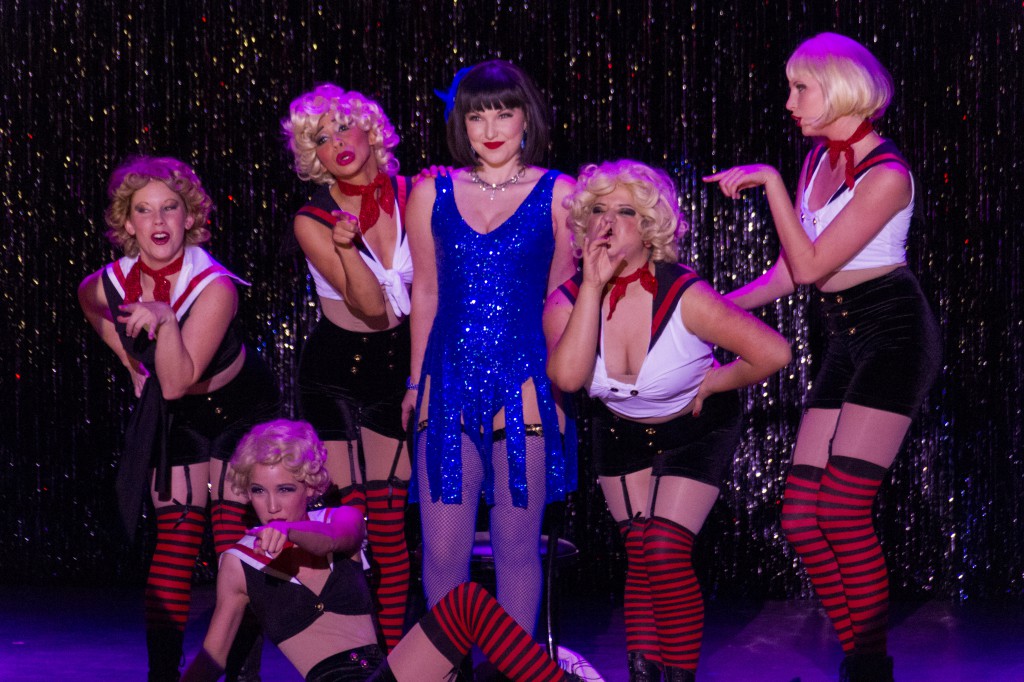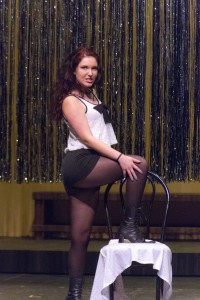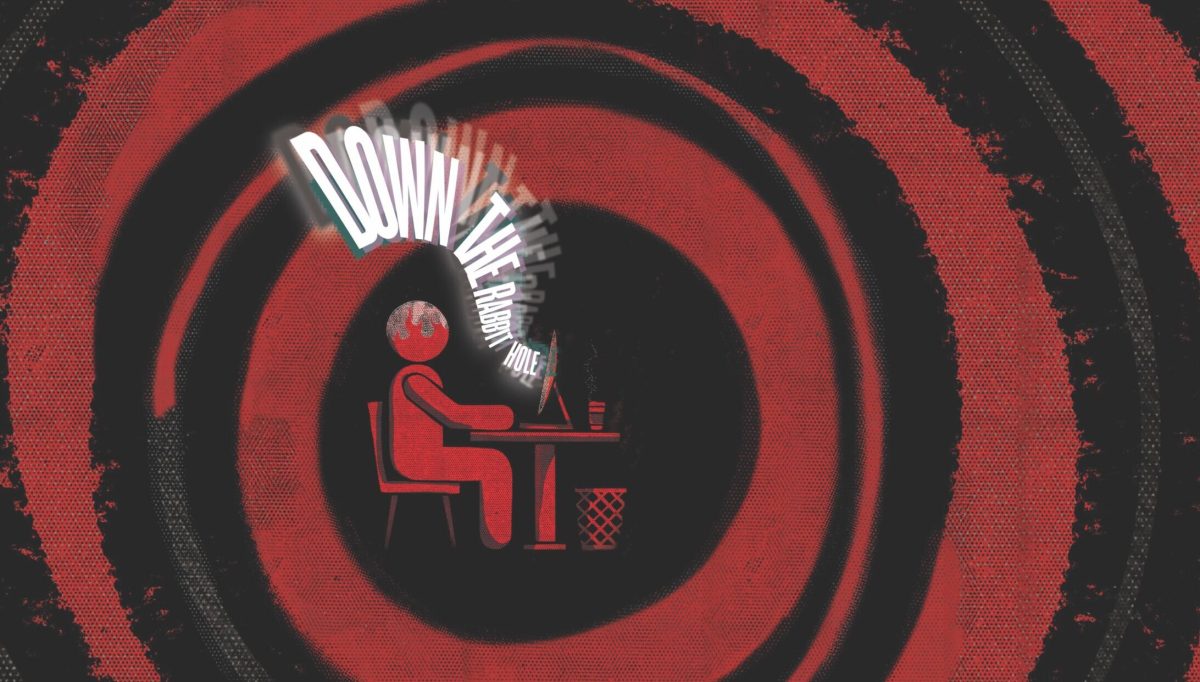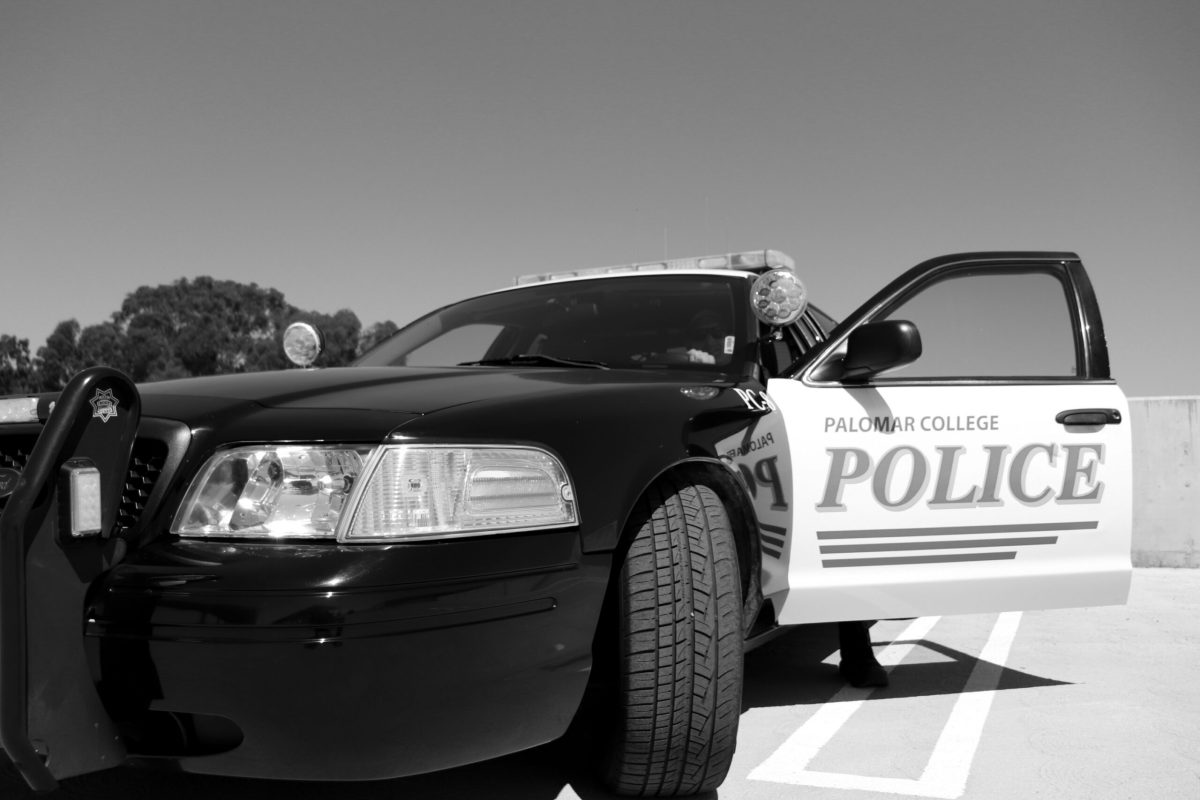
The Performing Arts Department’s production of “Cabaret,” directed by Pat Larmer, opened March 7 to welcome, or rather, “willkommen,” a full house.
As the lights dimmed for the opening number, the Master of Ceremonies, as any earnest Emcee would do, grabbed the audience by a hook and never let them go. Caled Halsted played the highly coveted role, and thrived after a slightly tense opening number supported by the Kit Kat Klub Girls.
Halsted Jumped in and out of Jane Craig-Jones’ flamboyant and gender bending costumes and cruised up and down Larmer’s and scenic designer Christopher J. Sinnott’s sets and layouts. It took Halsted time to fully evoke the decadent, cosmopolitan atmosphere of 1930’s Berlin, but it did not take long.

The action was so close that, when the first three rows were introduced to the Sally Bowles (Emilee Brown) in “Don’t Tell Mama,” and when they saw Cliff Bradshaw (Joshua Mekbel) provoke Sally to kiss him by reciting poetry, they felt they were in the Kit Kat Klub.
The enclosed space changed the audience’s engagement with the actors, creating a more private and intimate setting for Cliff, the self-proclaimed “starving artist” and novelist. Thanks to the spotlight work and lighting of Matthew Novotny, silhouettes performed onstage with their masters. Shadows danced on the scuffed walls of the apartment, bringing attention to the griminess of his quarters.
Not every moment was perfect.The choreography of Sue Gibson was sound but lacked polish, and the ensemble was clumsy during certain numbers. The Kit Kat Klub is supposed to be lively. Music plays in the background as characters interact but the volume of the piano, saxophone, and drums together was too distracting. At times the dialogue was barely audible.
But these are nitpicks. The “Intr’Act” performance, aided by the Halsted’s Emcee, dressed in drag and wearing black leather boots with five inch heels, made up for any discrepancies. The comic relief was most welcoming after the looming number “Tomorrow Belongs To Me—Reprise,” which was led by a surprisingly strong performance by Julia Miranda Smith as Fraulein Kost.
The belated love shared by Fraulein Schneider (Lisa Laughbaum) and the Jewish fruit vendor Herr Schultz (Bruce Blackwell) was finely executed and adorable. Laughbaum’s impressive vocals outshined Blackwell’s in “It Couldn’t Please Me More,” but Blackwell supplemented the number with his silly and charming quirks.
Cliff Bradshaw, the manifestation of the real life Christopher Isherwood, is a tricky role for any actor to play, and Menkel is commended for his effort. The role asks you to portray a bisexual writer, handsome but rather timid, who unexpectedly conquers a cabaret girl, for a time.
The delicate moment when Cliff’s transformation should occur is still somewhat elusive. Mekbel was too expository from the start, and

although he took control in act two, it may have come too late to convince the audience that Mekbel’s Cliff was capable of grounding the “mobile” Sally and briefly draining her of her fluid promiscuity.
Brown was sexy and sly when she needed to be, but her bouncy and disarming nature captivated her audience. The emotional connection Brown commanded, and Halsted’s triumph over early jitters, springing him to a spectacular finish, made this production all the more provocative, hilarious, heartwarming, heartbreaking.
Barely encumbered by its ambitions, Larmer’s production hit the bleakness and disillusionment of the original post-World War II musical with near perfect precision. The impending doom of the rise of the Third Reich, the anti-Semitism of the Nazi party, and the grave reality that it could happen again were not lost to Larmer. It is a narrative that must be retold and updated, and we were honored with a worthy addition to the conversation.























































